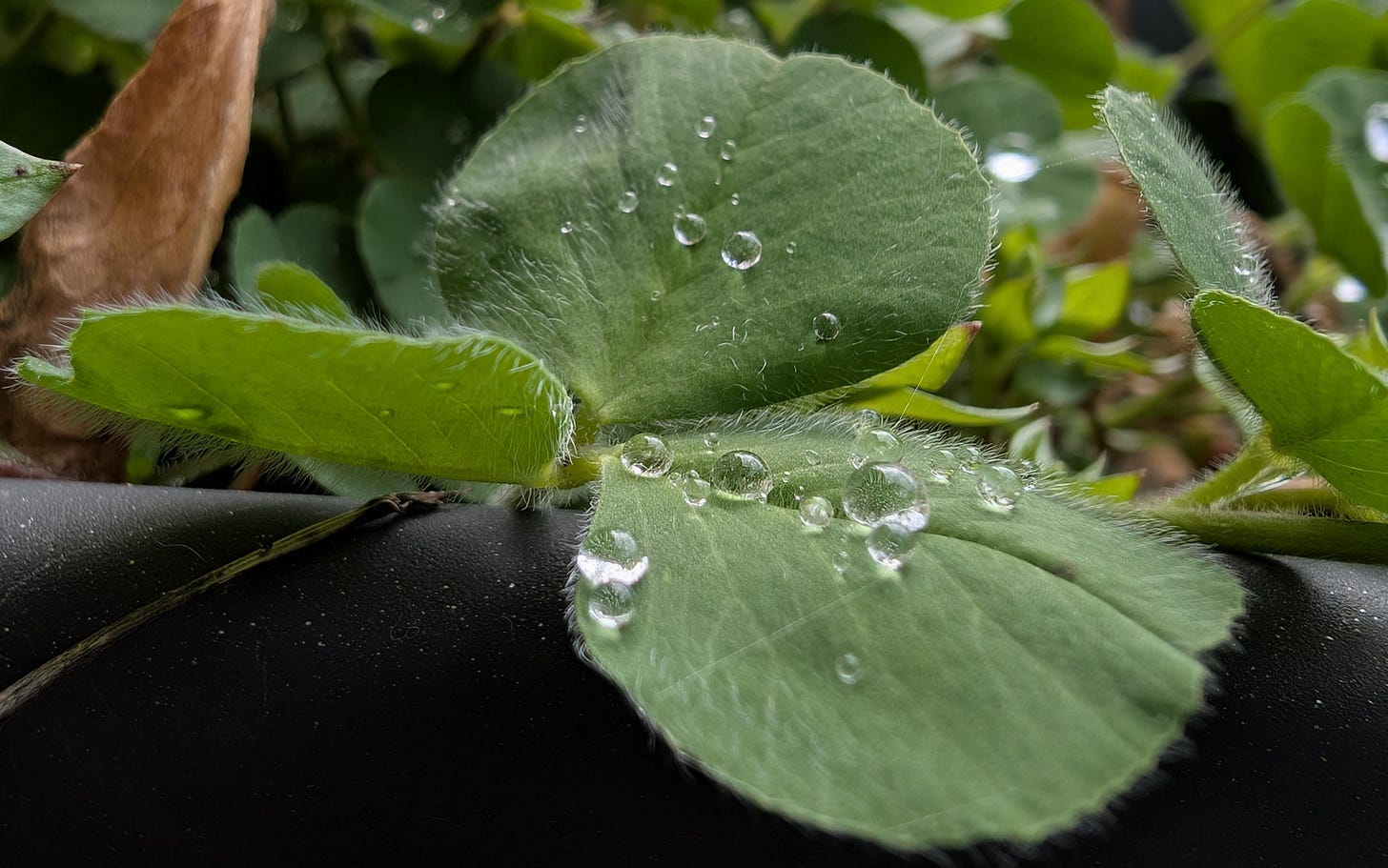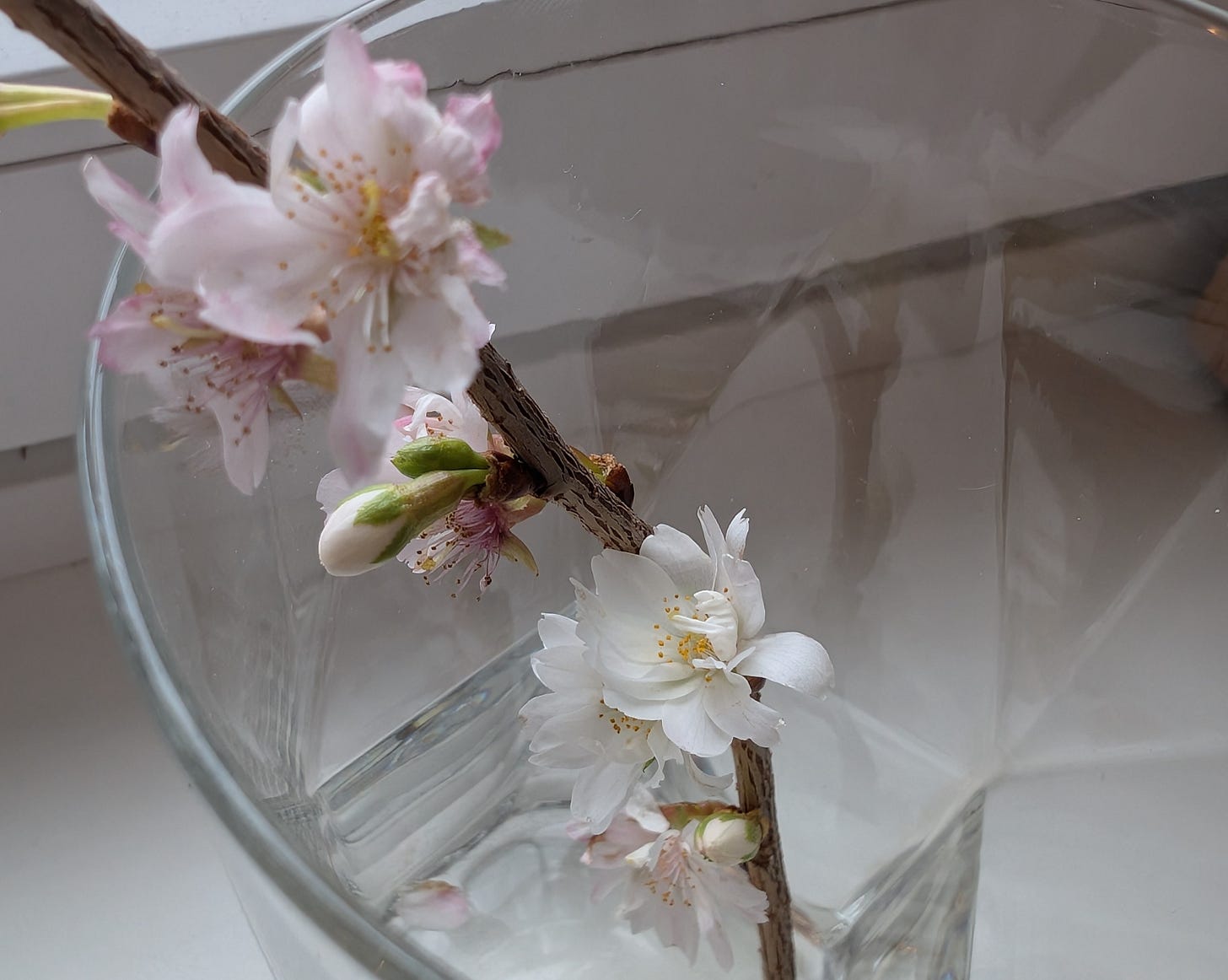Sometimes, my honest answer to the question of how I am at a given moment is that I feel ugly. I rarely say this phrase out loud, because I don’t want the other person to think I’m talking about physical beauty. I don’t want to hear empty platitudes about how I’m gorgeous, or for them to brush off what I’m saying, which is actually quite deep, as a surface level insecurity.
Because when I say this, what I really mean is: I’m suffering from the human condition right now. The many contradictions of being alive in combination with the grueling process of experiencing emotions like shame and fear and sadness are causing me to desire to wither away for a moment. I don’t want to be perceived right now, it is too excruciating. Though I know that I am beautiful, all these difficult circumstances are conspiring to have me believe that the people around me can see all of my most profound insecurities and challenges written across my face and body. And somehow, what comes to mind as the most apt summary of this mishmash of angst is “I feel ugly.”
What is beauty?
I love this question, I love asking it of the people around me. To me, beauty has to do with connection, being present, the humanity we share, and the singularity of this universe. It’s about divinity and authenticity - I don’t think there’s anything more holy than the what-the-fuck-ness of it all that we’re forced to endure together. When I see a raindrop-encrusted spider web, read a bad poem that expresses someone’s authentic experience, realize that another person suffers in the same way that I do, see someone trying, no matter if they succeed, I think “wow. That’s beautiful.”
I’m not immune to surface level beauty either. When I see a rose first blooming, a sunset, a woman with cool style walking down the street, my heart aches with the beauty of the moment. But why would being confronted with beauty come with a side of ache? Beauty seems to encompass a yearning; it’s fairly melancholic. It’s a recognition that all of this is temporary. None of it will last. The fleeting nature of everything is what makes it beautiful, and that’s where the impossible melancholy of true beauty comes from. What rapture it is to witness something or someone beautiful, to marvel at the miracle that I happened to be in the right place at the right time to see it, and then to recognize the heartbreak that it, whatever it is, will never again be like it was in that moment. Yet another inescapable contradiction of being alive.

So in light of all this, what does it actually mean when I say that I feel ugly? Embodying ugliness as the opposite of beauty is probably to be in a state of disconnection and forgetfulness, as in - I’ve forgotten that some of the most fundamental and difficult aspects of being human are what connect me to every other person on this planet, in one way or another. As in - I’ve forgotten that none of what I’m feeling is going to last forever, despite what the intensity of the present moment would try to have me believe. As in - I’ve forgotten that actually, the very experience I’m having now falls within my personal definition of beauty.
Many modern societies put in a lot of work to try to convince us that beauty is something we don’t yet have, but can attain if we would just follow the right skincare regimen, or attend some workout classes to achieve a certain body shape, or adorn ourselves with whatever the latest trend is. Of course, the goalpost is always shifting. Beauty standards change at a rate slightly quicker than most people, except for the rich, can reasonably keep up with.
Under capitalism and in the age of social media, true beauty as it relates to the fact that we’re alive and here in this moment and all connected, cannot exist. Or maybe it can, but only above a certain class threshold. If it did, we would have no need to outsource the responsibility of experiencing the fullness of our humanity to companies and influencers trying to sell us stuff. We would be much more frequently awestruck by the poetry of mundane moments. We would spend less time and money trying to attain an externally-approved definition of beauty, and perhaps have more energy and resources to devote to questions like: wtf is our government doing and why are we letting them get away with it?

Physical beauty is, as far as I can tell, a visible currency that buys people access to power. Power in the form of being treated with the simple decency that we all actually deserve but are often not afforded because of being fat, or dark-skinned, or disabled, or poor. Power in the form of access - people perceived as beautiful as it’s been defined by the systems we live in, i.e. thin, light-skinned, clear-skinned, youthful, are, for example, favored over others in hiring processes. This is called pretty privilege.
Some people may push back and say “well Emma, let’s be honest, some people are just so beautiful, more than others. Like you see them and there’s no question that something about how they look is really, really pleasing.” Ok. I concede, I experience this too. We all have preferences and our own definitions of physical beauty, and we all live under a myriad of social and cultural influences which shape our perceptions. But in my opinion, physical beauty does not a person beautiful make. At the very best, it’s a luck-of-the-draw mask for something much more fundamental. And anyway, our appearance is always changing.
Sometimes I recognize a person, or place, or thing, as ugly by conventional standards. To say this out loud would be considered greatly offensive to most. But where is the problem with acknowledging that something or someone does not conform to some random standard defined by people and systems we did not sign up to participate in? Standard definitions of beauty fail us when faced with the immense mystery of the human condition and this world. I would invite everyone to take on the task of reckoning with this and challenging your own perception of what is truly, actually beautiful.
I know that I am not alone in my experience of “feeling ugly.” Our perpetual seeking of externally-validated beauty keeps us in a perpetual state of feeling ugly. Our refusal to accept that all things change and we will all one day die keeps us in a state of feeling ugly. Our denial of the similarities within our differing experiences keeps us feeling ugly. The antidote to feeling ugly is, therefore, not to add another layer of foundation and to go to the gym. It’s rather to feel our feelings and take action to meet the needs they are expressing. It’s to remember that nothing of what we feel is something that we alone have each felt. Whether we like it or not, we are bound to the rest of humanity simply by merit of being alive. The antidote to feeling ugly is to accept that some of the ugliest things among us are in fact the most beautiful. Yet another inescapable contradiction of being alive.



